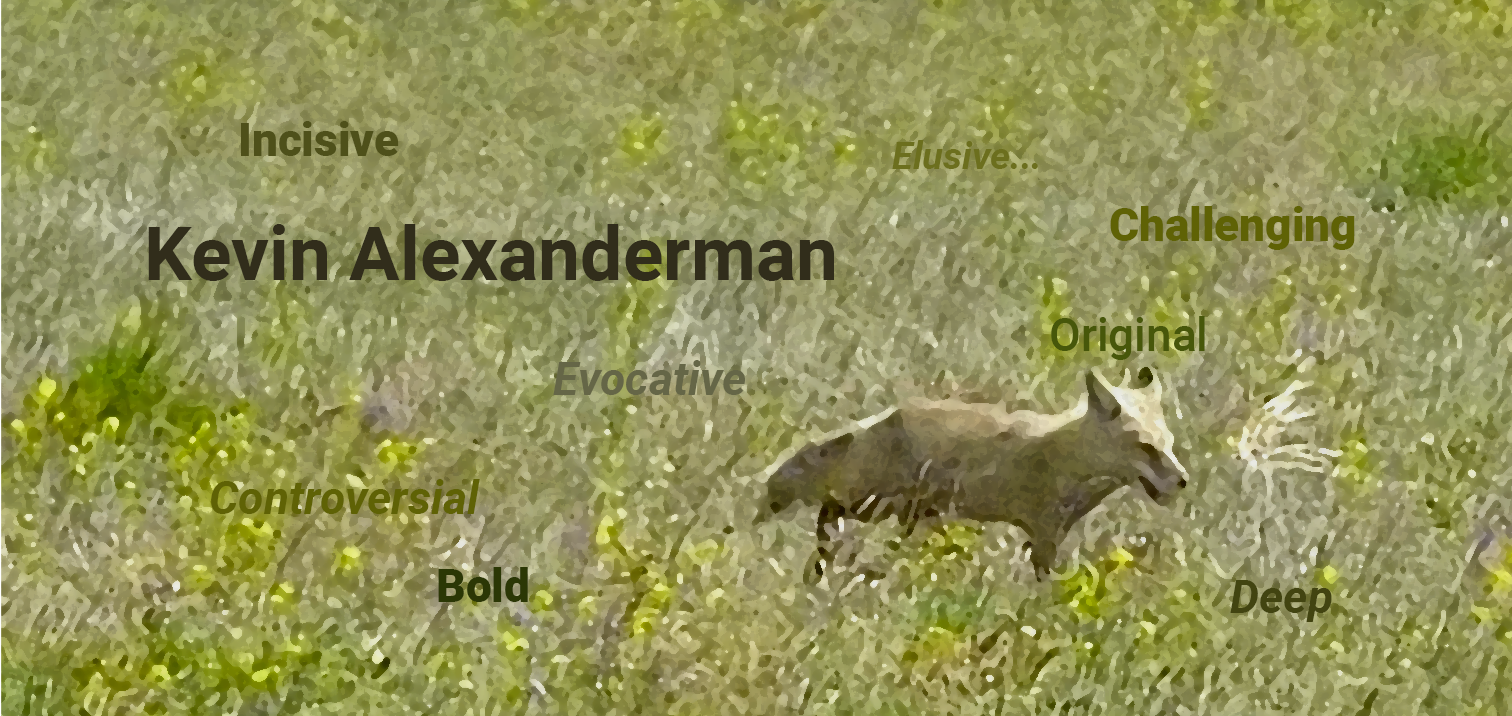Who is Kevin Alexanderman?
Kevin Alexanderman is an original author, scientist and technology entrepreneur who developed an historically-distinct theory of knowledge (epistemological theory), including unified new theories of
- Deduction (reasoning)
- Validation (scientific method)
- Induction (concept formation)
- Concepts (the nature of knowledge)
- Grammar (symbolic representation of language or syntax) and
- Lexicology (meaning).
The theory of deduction, concepts, grammar and lexicology were confirmed as emerging science with commercial software used by clients such as P&G and Litton Aerospace. Galileo confirmed Copernicus’ heliocentric theory with a telescope, showing that the Earth was not the point everything else revolved around (“the centre of the universe”), as was the consensus of the time.
In this case, the application KnowAll was the world’s first software that could deliver direct answers to questions in natural language, from live, unstructured text in documents or the internet. This is an application of the new epistemological theory that was not envisioned during its derivation, demonstrating the general nature of the new theory as an emerging science.
The theory of scientific validation was also confirmed by showing the “greenhouse gas” theory to be invalid science, in a quite controversial paper, soon to be followed by a book. This scientific analysis was pursued solely to test the new theory of validation.
The Conceptual Model Theory of Validation provides a more systematic means of assessing the validity of any idea in the general case, include concepts of the humanities. This new theory presents a substantially improved scientific method, and the opportunity to test it on a prevailing and important claim of scientists is quite exciting, and should fuel further controversy.
Stay tuned for more papers, blogs and books by Kevin Alexanderman, especially the revolutionary book, The New Science of Knowledge, which is to be published in June, along with software demonstrating the new theory of deduction, in the technology Natural Language Reasoning (NLR).
A Solution to the COVID-19 Crisis
Is the Solution Widespread Hydroxychloroquine Use? Economic Depressions Kill. Do you know that a person who is basically healthy, could take hydroxychloroquine alone, at probably 200mg, if they have a fever, without harm? If the symptoms persist, they could seek medical attention. If they subsided, they could stop the medication. If the symptoms returned, they
Is the COVID-19 Calamity Unnecessary?
Is Martial Law Really Necessary? People have to survive. They can die from a virus, or from starvation. In other words, shutting down free markets will potentially kill more people on its own than the virus. But let’s digress a bit to discover more about what has actually been happening. There appears to be a
Exposing Fake News for Yourself
What is the difference between Fake News, and Sound Knowledge? How do you tell? If you want someone else to tell you—a government, an expert, or a newspaper—what happens if they are wrong? Are you willing to take that risk, or is there some other way to discern knowledge from speculative opinion that you can
Do you have children in school/uni and are concerned with leftist indoctrination?
How can you counter leftist indoctrination? Today many people are concerned with the wholesale indoctrination of students that is occurring by the left within the academic community. Schools and university professors are openly biased, and ruthlessly oppose any challenge to their socialist hegemony. They fight with slander, libel, general ad hominem attack and any other method of character
Reviews of Books and Papers by Kevin Alexanderman
What is "Fake News"?
“Fake news” is a term bandied about by all kinds of people, for all kinds of reasons.
Labelling something with this term is an attempt to cause people to ignore an idea or a viewpoint, rather than consider it in earnest. But is that the right way to look at a different idea? Isn’t that being close-minded?
From the perspective of the Conceptual Model Theory of Validation, every idea should be subject to validation. We often base our actions upon ideas that we consider as valid, so if a concept is invalid, acting upon it can cause us or others harm, or undermine our success in pursuit of what we value in life.
Understanding the mental process of validation explicitly helps us confirm the accuracy of ideas more rigorously and consistently, improving our capability to achieve our aims.
With a science of validation, no one needs to tell us if something is “fake news” or not, because we can figure it out for ourselves, as intelligent people.
Download the Introduction to the new book
Validating Ideas
(functioning shortly)
“Without a science of epistemology, there can be no genuine AI“
Kevin Alexanderman
...




